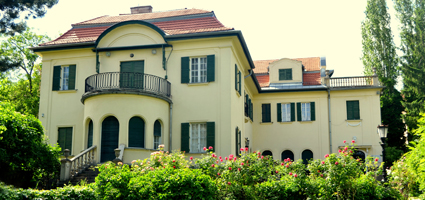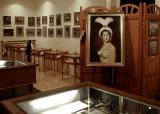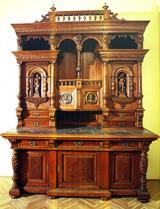2024. May 7. Tuesday
Gizi Bajor Actor Museum - Budapest
 |
Address: 1124, Budapest Stromfeld Aurél út 16.
Phone number: (1) 225-3161
E-mail: bgm@oszmi.hu
Opening hours: Wed-Sun 14-18
|
Since 1962, the Gizi Bajor Actors' Museum, which belongs to the Hungarian Theatre Museum and Institute, has been a unique site for the memory of the Hungarian theatre history. The permanent exhibition, opened in 2010, on the first floor of the museum, preserves the memory of the one-time owner of the villa, Gizi Bajor, one of the biggest actresses of the Hungarian stage: her memorial room displays her personal objects, stage props, while the visitors can get to know the details of her professional and private life.



